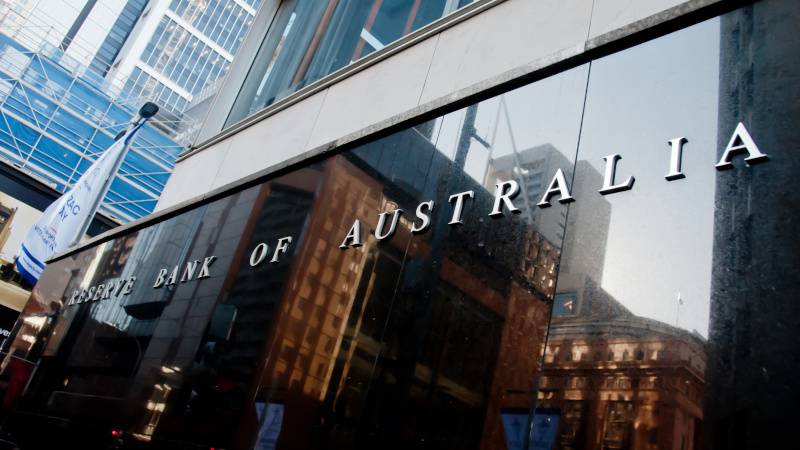RBA reveals June cash rate call
The Reserve Bank of Australia has made its last call on the official cash rate for the 2020-21 Financial Year.
As widely predicted, the RBA has held the cash rate at a record low 0.1 of a percentage point, despite the housing market continuing to boom with no constraints.
In a statement posted, RBA governor Phillip Lowe said that the Board has "decided to maintain the current policy settings, including: the targets of 10 basis points for the cash rate and the yield on the 3-year Australian Government bond; the parameters of the government bond purchase program; and the rate of zero per cent on Exchange Settlement balances".
"The Board is committed to maintaining highly supportive monetary conditions to support a return to full employment in Australia and inflation consistent with the target. It will not increase the cash rate until actual inflation is sustainably within the 2 to 3 per cent target range. For this to occur, the labour market will need to be tight enough to generate wages growth that is materially higher than it is currently. This is unlikely to be until 2024 at the earliest."
“The global economy is continuing to recover from the pandemic and the outlook is for strong growth this year and next. The recovery remains uneven, though, and some countries are yet to contain the virus. Global trade in goods has picked up strongly and commodity prices are mostly higher than at the start of the year. However, inflation in underlying terms remains low and below central bank targets.”
“Sovereign bond yields have been steady recently after increasing earlier in the year due to the positive news on vaccines and the additional fiscal stimulus in the United States. Medium-term inflation expectations have lifted from near record lows to be closer to central banks' targets. The 3-year government bond yield in Australia is consistent with the Board's target and lending rates for most borrowers are at record lows. The Australian dollar remains in the upper end of the range of recent years.”
Once again, the decision to leave interest rates on hold failed to surprise economists, with the RBA repeatedly echoing its intentions to keep rates as they are until 2024 at the earliest.
Economists appear to also have come to terms with the bank’s apparent comfort with the red hot property prices.
In fact, CreditorWatch chief economist Harley Dale applauded the RBA’s decisions, noting that they’re clearly having the intended impacts given the “largely positive” economic recovery, despite even the latest setback in the form of the fourth Victorian lockdown.
“The synchronisation of expansionary fiscal policy and ultra-low interest rates are clearly paying dividends and the Reserve Bank of Australia appears quite comfortable with the current situation as the central bank holds fast on interest rates until the dynamics of Australia’s inflationary pressures change,” Mr Dale said.
However, Mr Dale did note that a decent inflationary pulse for the economy needs to be found, as well as that “ever-elusive evidence” of upward pressure on wages.
“It's just one month to go until the RBA’s $200 billion term funding facility for banks comes to an end and questions around whether the RBA will inject additional liquidity to complement the Federal Government’s expansionary fiscal policy,” Mr Dale said.
“H2 will be an important time for boosting business investment and ensuring Australia’s economic recovery remains durable.”
The RBA’s latest decision has also partially silenced chatter of sooner than expected rate growth, with AMP Capital’s Shane Oliver conceding on Tuesday that despite the faster than expected economic recovery, the RBA’s conditions for a rate hike "are still far from being met”.
“The jobs market is still a long way from full employment, wages growth at 1.5 per cent is way below the 3 per cent plus pace necessary to sustain 2–3 per cent inflation and in any case inflation is still well below its target zone. So, a rate hike remains some time off,” Mr Oliver said.
However, some are still certain the RBA will be pushed to move in 2023.
"The next move in interest rates is almost certain to be up, with the RBA likely to start tightening monetary policy by 2023,” said David Robertson of Bendigo Bank.
“The current pace of economic recovery combined with fiscal and monetary stimulus may bring this forward to late 2022, but the RBA would prefer to wait for other central banks (e.g. NZ and Canada) to move first, before exiting 'zero percent interest rates'.”
In the meantime, some of the big four are almost certain that macro-prudential measures will be enacted to slow the speed of property price growth.
In fact, Westpac hinted in its latest housing pulse report that the RBA could act in the first half of 2022, following the latter’s announcement in May that confirmed it would be “watching closely” as housing borrowing balloons.

Tony Zhang
Tony Zhang is a journalist at Accountants Daily, which is the leading source of news, strategy and educational content for professionals working in the accounting sector.
Since joining the Momentum Media team in 2020, Tony has written for a range of its publications including Lawyers Weekly, Adviser Innovation, ifa and SMSF Adviser. He has been full-time on Accountants Daily since September 2021.


